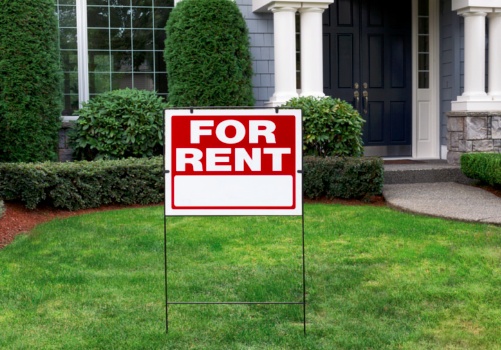It’s cheaper to own a home than to rent one, and that’s good news for investors and landlords. Here’s why:
We’ve been telling you for a while that it’s a good time to be a landlord and buy and hold real estate—property values have nowhere to go but up.
But appreciation isn’t the only perk.
Demand for rental property is stronger than ever.
7 reasons why now is a great time to be a landlord
No. 1 – The weak economy
The economy may be on the mend, but many are still uncertain about their jobs and their future and, as a result, are reluctant to put down roots. Renting makes sense to them, even though they can afford to purchase a home, because they don’t know whether they will be living or working in the same area in the near future, according to Tim Herriage, regional president of Dwell Finance.
Don Lawby, president of Property Management Business Solutions, the franchisor of Real Property Management, adds that reduced hours at work and lower paying jobs in general are making it more difficult for people to make homeownership a reality. They are forced to rent.
That’s not to mention those who lost their jobs during the economic downturn, even if they have since found new ones. Job loss forced many to rely on savings, maybe even the money they were saving for the down payment on a house. Some even lost their homes through short sale or foreclosure or had to declare bankruptcy. More renters. Which makes it a good time to have properties available for rent.
The demand for rentals, especially single-family homes, is strong, and there’s no reason to believe that will change in the near future. “I think, until the economy in the country actually increases, you will see the rental market continue to remain strong,” Lawby says.
No. 2 – A wait and see mentality
 Economic uncertainty has other implications.
Economic uncertainty has other implications.
People are not only waiting to put down roots because they want the mobility to follow the jobs, but they also are waiting to get married and start families. According to the U.S. Census Bureau, the median age of men and women walking down the aisle for the first time has increased roughly 10 percent since 2007. Men are waiting until they are nearly 30 years old to marry, while women are tying the knot, on average, at age 27.
That translates to less pressure to purchase a home, Herriage explains, citing Commerce Department estimates that ownership will drop from its current rate of 64 percent to less than 61 percent. Each 1 percent drop in the ownership rate translates to an increase of approximately 1.2 million renters.
Broker Steven Cohen with Keller Williams Realty in Boston points out that the 2016 presidential election will only exacerbate this. People may decide to continue renting until they feel comfortable with the direction the new president is leading the country. “We can reasonably expect the trend toward renting to continue to strengthen,” he says.
No. 3 – Few available properties
The weak economy, decline in the marriage rate and fallout from the short sales and foreclosures of the housing crisis have created a strong rental market. More people are competing for the available rental properties, and vacancy rates reflect that, steadily declining from a peak rate of 10.7 percent in 2009 to the current rate of 6.7 percent.
For investors, that means fewer days on the market; in fact, in some areas, available single-family homes are being snatched up in just a few days, says Dan Noma Jr., owner of Venture REI in Phoenix. He doesn’t see that changing anytime soon.
But the implications go further than just fewer days on the market and minimal lost rent. You may be able to be pickier in the selection process by rewriting your acceptance criteria with higher standards (i.e., a 550 minimum credit score versus your previous 500). Once you have a good tenant, he or she may want to stay put rather than jump into such a competitive market.
Real Property Management believes the rental vacancy rate will continue to decline even as the economy improves. Lawby says a stronger economy will allow those who couldn’t afford to—think Millennials—to move out on their own, most likely into rentals.
No. 4 – High rental rates good for landlords
 Fewer available properties mean higher rent rates. Real Property Management recently released rental statistics showing that through the first quarter of 2015, the average monthly rent for a single-family, three-bedroom home was $1,286, a 5.4 percent increase over the previous year.
Fewer available properties mean higher rent rates. Real Property Management recently released rental statistics showing that through the first quarter of 2015, the average monthly rent for a single-family, three-bedroom home was $1,286, a 5.4 percent increase over the previous year.
“As long as rental markets are tight, it’s going to put pressure on rental rates,” Lawby says. “Rent rates will go up or remain high.”
He cautions, though, that it depends on the local housing market and economy. Broker Patty Brockman with Windermere Real Estate in Portland points out that because it’s cheaper to own property right now than it is to rent, most investors will be able to generate positive monthly cash flow.
They can charge more in rent than they would have to pay on their mortgage or a loan, if they even have one. On top of this, she’s seeing a higher appreciation on homes lately.
No. 5 – Low inventory
There just aren’t that many available houses out there if you want to purchase a single-family home as your primary residence.
“In Portland’s market, the inventory of available homes hasn’t been this low since 2005,” Brockman says. “We are in desperate need of housing, and that need is only going to grow.”
 Leslie Kilpatrick, branch manager with Willis Allen, is seeing the same thing in San Diego County. In May 2015, the average San Diego home spent only 36 days on the market. Add to that how difficult it is to get a loan these days and soaring building costs, and Kilpatrick doesn’t see a drop in rental rates or demand any time soon.
Leslie Kilpatrick, branch manager with Willis Allen, is seeing the same thing in San Diego County. In May 2015, the average San Diego home spent only 36 days on the market. Add to that how difficult it is to get a loan these days and soaring building costs, and Kilpatrick doesn’t see a drop in rental rates or demand any time soon.
It comes down to affordable housing, she explains. If someone can’t find affordable housing to purchase, they are going to have to rent. That’s where the investor comes in. Homebuyers don’t necessarily want the properties that an investor would, according to Noma, so you aren’t necessarily competing with them. In fact, it can be a good, steady market for investors.
“You don’t need to rush into things like you did in 2005 where you were doing deals on the back of napkins just to get your hands on a property,” he explains. “You can be selective.”
No. 6. – Inability to buy
Many Americans who can find a property and want to buy can’t.
“It’s a tough time for someone who is renting to get out of rentals because they have to be able to come up with the money to for the down payment and closing costs,” Lawby says. “Until the economy turns around, that’s going to be hard for a lot of people.”
Statistics bear that out. Over the last five years, median housing prices in the United States have increased by 27 percent from $172,300 in April 2010 to $219,400 in April 2015 while income has increased just 6.5 percent from $51,100 in April 2010 to $54,578 in April 2015. In the last year alone, median housing prices have increased by 9 percent while income has stumbled along at 2 percent.
Even if a renter can save enough for a down payment, stricter lending regulations have made it difficult to get approved for a mortgage. Until banks loosen up a little, these renters will remain renters, increasing demand for rental properties and keeping rent rates high.
No. 7 – The stigma is gone
Homeownership used to be the American Dream. Owning a home was a sign of success, proof that you had “made it.” Renting, on the other hand, was looked down upon, and renters were often viewed as financial failures.
The housing crisis changed that. Suddenly, people who never dreamed of renting a home found themselves doing just that, and they realized they actually preferred it to owning. Meanwhile, younger generations watched their parents and their parents’ friends lose homes and savings when the housing market crashed and decided they wanted no part of homeownership.
As a result, more people are renting by choice, and that number is expected to increase. The National Association of Realtors estimates that 5 million to 6 million families will become new renting households within the next 10 years, and those families will need landlords.


























0 Comments